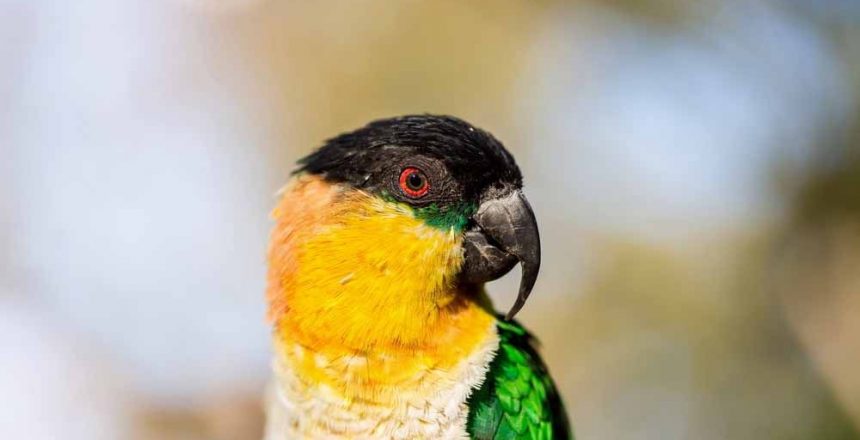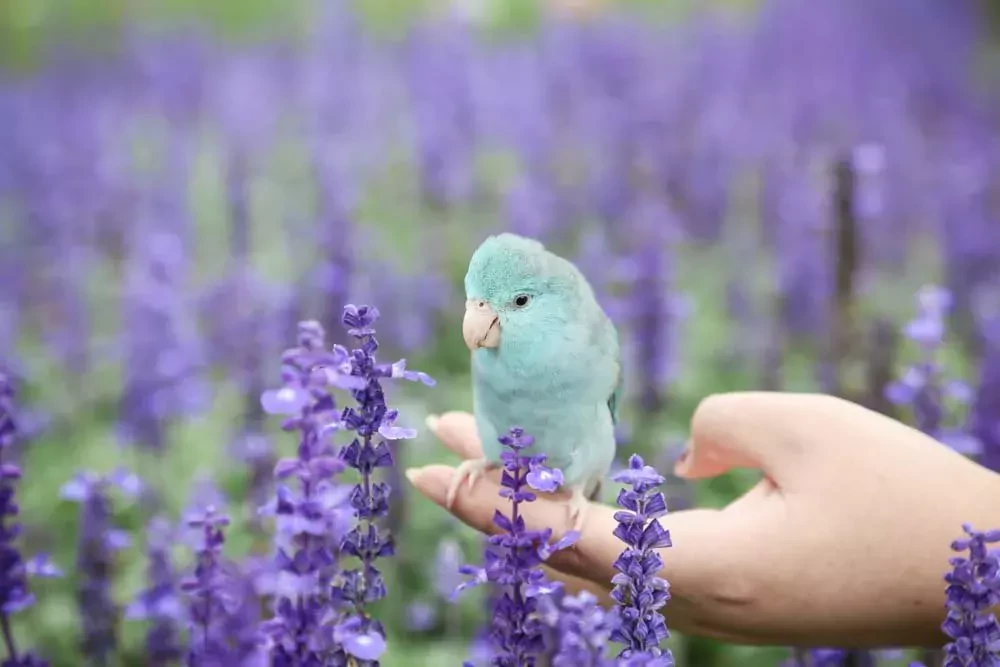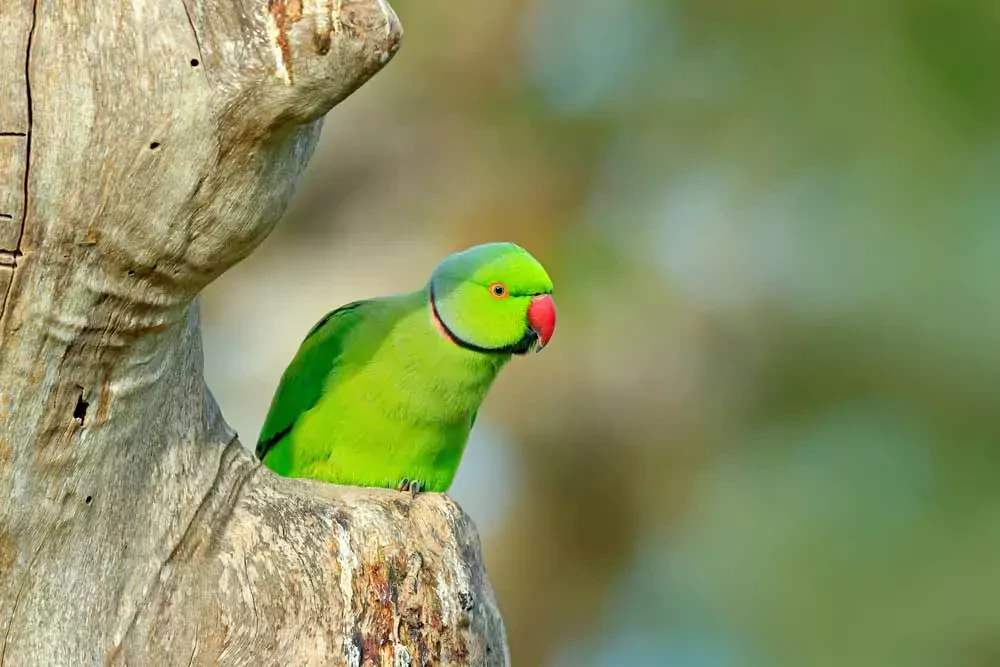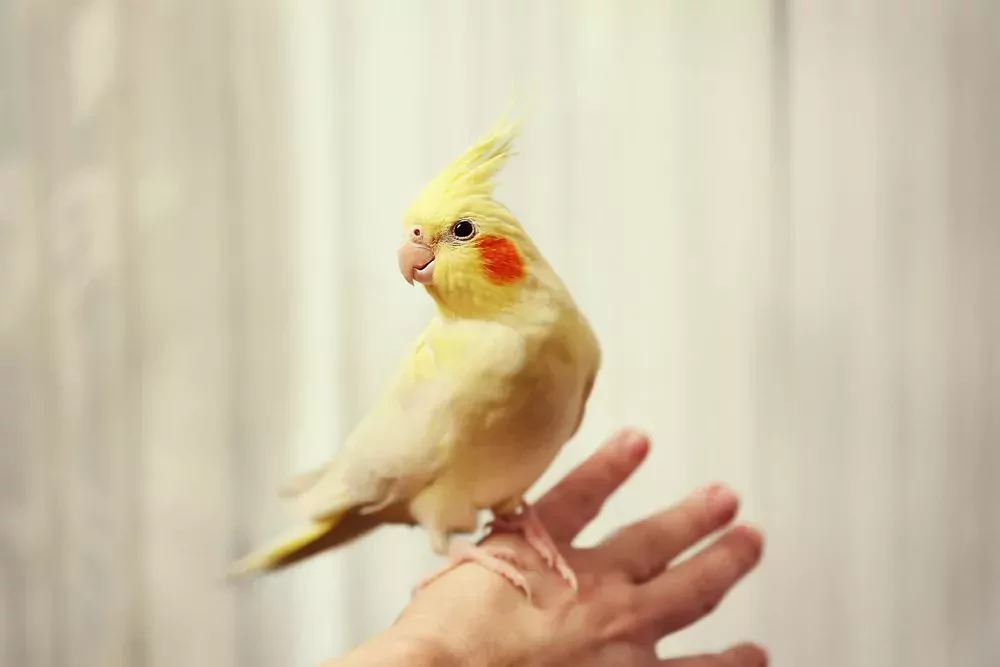Smart, colorful, active, inquisitive and fast-moving parrot, these are some reasons why a Caique is called the acrobatic clown bird.
There are two similar types of Caiques, which can be taken as pet birds, the Black-Headed Caique -it is easy to acquire that amazing companion pet- and the White Bellied Caique. They are almost sharing the same physical appearance but with some different variations.
The Black-headed Caique has a black head, a yellow-orange neck, white belly, yellow legs, black beak, and a greenback, wings, and tail. Some of their wing feathers also have blue, add in grey feet and it’s no wonder that these little guys are sometimes called the “seven color parrot!”.
The White-bellied Caique has a yellow-orange head, white belly, a light colored beak, and a greenback, wings, and tail.
Caiques are high- energetic and medium-sized species, their typical weight 150g- 170g and they can live up to 30 years. They have stocky bodies and short, square tails with very bright colors (green, yellow).
Habitat and distribution:
Caiques are native to the Amazon Basin in South America. In the United States, they will cost half the price compared to their price in Australia because it has severed laws concerning the importation of Animals.
In the wild, the Caique’s food consists mainly of flours, seeds, and fruit. They are often observed in pairs and small flocks; they spend their time climbing, jumping rather than flying.
How to take care of a Caique
[thrive_leads id=’1163′]
Diet: to ensure that your Caique stays healthy, you will need to feed him nutrients and vitamins, these are in green vegetables, selected fruit – as apples and oranges – and store-bought seed mixes which will cover all the bases for your Caique, for example, Avi-Cakes, Popcorn Nutri-Berries, and Tropical Fruit Nutri-Berries. Never give a Caique avocado, chocolate, or honey, as these may harm them.
Cleanliness of the Caique: Caique’s curious and vigorous nature makes him require basic care to be healthy pet. Caiques might be more susceptible to polyomavirus, which results in gastroenteritis and also affect the bird’s heart, liver, and kidney. So, try to:
- Avoid drafty, dark and cold places, and make good hygiene a priority.
- If not provided with a bathing dish since they like to bathe, be sure that they will make a mess of their drinking water.
Cage: As we mentioned earlier, Caiques like to hop all over the place, love to move about. That’s why you are required to provide your Caique with large, spacious cage with a lot of swings, perches, and some toys because they may suffer from being confined to a small cage.
- +Covering their cage with a light cloth at night, nudging them to sleep and be silent.
- +Avoid placing them together with birds of different another kind of birds. Violence can ensue.
- +Make sure your Caique has plenty safe toys to play with.
- +Watch your pet’s actions whenever it is out of the cage.
Caique’s sounds: Caiques can be a little bit noisy and have a good talent for mimicking sounds such as: alarms, sirens, beeps, and some animal sounds or even a few words can be heard because the like to show off. So, they often mixe different sounds.
Caique’s behavior: The parrot community has been observed that Caiques have an interesting behavior, which called «surffing », means that When a Caique surfs he dives the back of his head onto a surface and then slides long his back. Caiques will often do this on towels, on hands, and on people’s heads.
+Caiques look like they are wearing pants because of their coloration; so, if the feathers on their legs are fluffed, it may mean that he is excited or he is showing aggressive behavior. Excites is a common behavior for most parrots that can lead to a bite.
How to know if a Caique is right for you
- Caiques enjoy activities that involve movement and interaction that’s why you have to give too much time to your Caique.
- Caique may nip if they are stressed so before deciding to raise a Caique, know first if you can live with nipping.
- If you want a bird only to watch then choose canary instead of a Caique but if you want to play, interact and spend enough time with your bird then a Caique is an appropriate choice for you.
- If you have other pets in your house as cats and dogs, you should keep them away from your Caique when he is outside the cage.
- You can get two birds- a pair- from the opposite gender to not feel lonely when you are not at home, do not get two males because they will fight.
- Raise a Caique means a lifelong commitment because their lifespan is up to 30years if you know that you can’t commit so try to raise a bird which his lifespan is shorter.
- Caique needs a lot of toys even toys for larger parrots because they quickly destroy them.
- If you have not much experience with birds or you’re a first-time bird owner then pick a gentler parrot because Caiques are more difficult to train.
- Adopt a Caique if you want a quieter parrot.
Cool facts
- Caiques can learn tricks very easy.
- Caiques have a habit of nipping and biting at everything- you included.
- Caiques like to hop too much, that’s why they are nicknamed by the “Dancing Parrot”.
- A study of Black-headed Caiques has shown that they are more frequently right footed than left-footed, while most other parrot species are left footed.
- Caiques often like to sleep on their backs and also love to juggle small toys while laying on their back.
- A caique’s smell can denote its emotional state. If he is happy he will have a sweet smell but if he is sad he will have a smell like cardboard.
- There are two countries – Ecuador and Peru – which have honored Caiques on postage stamps.



